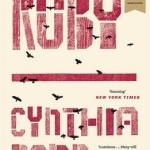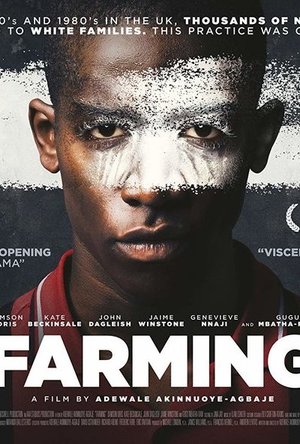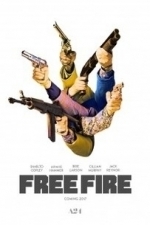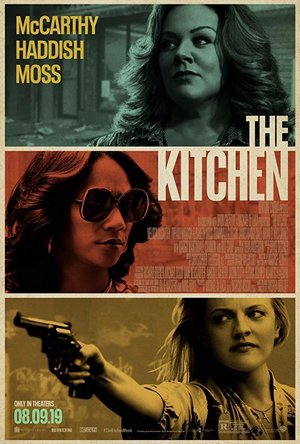Whatchareadin (174 KP) rated Ruby in Books
Apr 3, 2019
Ephram Jennings lost both his mother and father at a young age and was raised by his sister Celia. Celia takes great care of Ephram and together they attend church every Sunday and are a pillar in the community.
Ephram has known Ruby Bell since they were small children, although his interaction with her has been very limited. When she returns to Liberty Ephram would like to change that. But Ruby Bell is no longer the same woman who returned to Liberty. Frequently she can be found huggin the chinaberry tree on the edge of the woods near her home(Bell Land), she is often naked, or barely dressed and once even urinated in the middle of the street. Everyone in Liberty knows that Ruby Bell is a harlot and a Jezebel. Ephram refuses to believe that this is true and makes it his mission to prove this to the entire town.
Religion plays a big part in this book which really spoke to me. We as Christians are taught to love one another and treat each other the way Jesus treated the world, with kindness and compassion. It always gets to me how tolerance and love become an issue when trying to help those who are different. Ruby is plagued by demons in this book and the town shuns and rapes her for this. They call her crazy and when Ephram goes to her to help her be the woman HE knows she can be, he is looked down upon by the entire town and especially by his sister Celia. Ephram wants to understand the demons in Ruby and he never judges her for her "crazy" ways, but tries to comprehend what she is going through.
This story really touched my heart. We all need to do what we can for each other especially in the African American community. We tend to shun away from each other instead of embracing one another. I loved the way that Ephram went to Ruby despite what the rest of the town thought. How he stood by her side no matter what. This book could teach us all a lesson.
Nicole Hadley (380 KP) rated The Banana-Leaf Ball: How Play Can Change the World in Books
Jun 18, 2018
The main character, Deo Rukundo, an East African boy is forced to flee his home because of a war in his country. He ends up separated from his family and keeps running deep into the forest for safety. After many weeks where he lives on dew drops, wild fruits and leaves he finds his way to a refugee camp in Northwest Tanzania. Frightened, homesick and alone, he prays for the well-being of the rest of his family.
With little resources in the refugee camp bullies emerge and vandalize those living there. They steal and intimidate everyone and they especially target Deo. Remy the gang leader is menacing and poses threats to all those he encounters.
One day a coach arrives and gathers up the children to play a game of soccer. He hesitates about joining in the game but his excitement overcomes him and he touts his excellent soccer skills in front of the coach. Very impressed, the coach makes Deo captain of the "shirts" team. As the game progresses brand new feelings of comradery and acceptance emerge from the players as they work together as a team to score that winning goal. The kids start to laugh, forget their worries and relax. They area transformed into" kids" once again.
In the following days the kids gather at Deo's house and he teaches them his soccer moves and how to make a ball out of dried banana leaves. Most importantly they open up to each other about their feelings and share their experiences both before refugee camp and the life they are living now.
This book is based upon a true story. It is heartwarming and inspiring. It points out that truly frightening, seemingly hopeless situations can indeed be turned around into something positive and bearable for those caught in such tragic circumstances.
The book is a perfect catalyst to get kids talking about others less fortunate and the social justice issues that surround refugees all over the world. It allows them to discuss the handling of bullies and the value of sports, teamwork, sharing with each other and acceptance.
I received this ARC book from Kids Can press via NetGalley in exchange for an honest review.
Phillip McSween (751 KP) rated Farming (2018) in Movies
Mar 18, 2020
Acting: 5
I couldn’t tell up from down, good from bad from these characters and, while that is attributed partly to writing, I think it falls on the poor acting performances as well. With the exception of a couple people here and there, almost everyone dropped the ball in this movie. It was almost as if they were making something they wanted no part of and, as a result, never really gave themselves over to it.
Beginning: 6
The beginning was good enough to get my attention. However, definitely didn’t love it. Like the majority of the movie, it was missing something for me. Little did I know, I was in for even more disappointment…
Characters: 1
Cinematography/Visuals: 0
Conflict: 3
Entertainment Value: 4
After twenty-five minutes of watching, I knew the movie was pretty much headed nowhere. It’s hard to enjoy a movie when you spend the majority of it breaking down and destroying the main character until it’s no longer interesting. It was like watching someone pick at a dead ant. The more I watched, the more I lacked interest.
Memorability: 0
Never have a single solitary desire to see this movie again. The message sucks. The movie sucks. “Forgettable” doesn’t begin to describe it.
Pace: 6
The pace is solid in spots but the story is so painful it negates that things are moving quickly. I wanted this to end so many times and it wouldn’t. It frustrated me to no end.
Plot: 1
An interesting premise spoiled by terrible execution. The movie should have centered on empowerment, yet it lingered too long on the tearing down portion. Eventually that becomes a bane to your audience and hard to stomach.
Resolution: 10
Overall: 36
I did sympathize with the main character’s culture shock in Farming having to go from African culture to British culture. I can imagine it would almost be enough to drive someone crazy and it definitely did a number on him. I would have liked to see his story told in a better fashion with a stronger glimmer of hope. That’s what we watch movies for, right? To hope for something better than the same old mundane shit we deal with on a regular. Farming dropped the ball and I’m damn sad about it.
Sous Les Ordres de Rommel: Des Deserts D'Afrique Du Nord Aux Plages de Normandie
Hans Holler and Markus Reisner
Book
In this extraordinary autobiography by Hans Holler, an Austrian born in 1921 near Wiener Neustadt,...
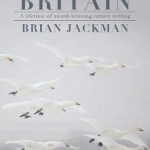
Wild About Britain: A Lifetime of Award-Winning Nature Writing
Book
A new collection of award-winning journalist and author Brian Jackman's nature and travel writings...
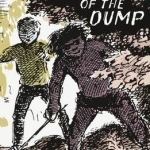
Stig of the Dump
Clive King and Edward Ardizzone
Book
A Puffin Book - stories that last a lifetime. Puffin Modern Classics are relaunched under a new...
Gareth von Kallenbach (980 KP) rated Free Fire (2017) in Movies
Jul 11, 2019
It may say Scorsese’s producing, but Free Fire definitely smacks more of a Tarantino-influenced affair and I can think of no better example, in recent years anyway, that proves the lasting legacy of his still awe-inspiring debut, Reservoir Dogs. After years of making deliberately obtuse films (High Rise, A Field in England), Ben Wheatley has finally made something accessible, but unfortunately, Free Fire can’t pack the same visceral punch and narrative competence as the films that it takes influence from. I’m having flashbacks to about this time last year when I reviewed another film from A24, Green Room. I walked out of Free Fire in much the same manner; on a high, feeling satisfied from what appeared to be something unique and notable. As the hours have passed and I’m preparing my summation, the sentiment has all but vanished and I’m wanting of something with a little more substance. Granted, an 90 minute runtime can only accommodate so much, but I have to ask: could all that time spent crawling around in the dust and the rubble, as realistic a light that it may or may not shine on the authenticity of an actual shootout, have been used instead to get inside our characters motivations, driving us to really care about their fates? There’s no doubt that from its style and attitude, there was the potential for this to be the Reservoir Dogs for a new generation, but ultimately it’s just not a very memorable experience.
What will save Free Fire from obscurity is a cast that, despite having little plot to work with, is firing on all cylinders. An exemplary job is done from Oscar winners on down to character actors whose faces you know, but names you don’t. There isn’t one weak link in the chain and their performances have an excellent balance of toughness and levity that grounds them just enough to allow for suspension of disbelief. I might chastise Ben Wheatley as a storyteller, but there’s no doubt that he has an ear for great dialogue and fine judgement on the performers to deliver it.

Love and Hip Hop The Game
Games
App
Join the empire of young, hot rappers all hungry for success in Love and Hip Hop. As an aspiring...
BankofMarquis (1832 KP) rated The Kitchen (2019) in Movies
May 17, 2020
I should have watched 21 BRIDGES.
Based on the DC/VERTIGO graphic novel, THE KITCHEN is set in the late 1970's in NYC and offers up the "what if" scenario of 3 women that take over the Mafia. A pretty interesting premise that could have been the GODFATHER or GOODFELLA's of the day (or...at least...another WIDOWS from 2018), but instead THE KITCHEN falls flat like the all female GHOSTBUSTERS from a few year's ago.
A star of that Ghostbuster's film, Melissa McCarthy leads the cast as Kathy Brennan, the wife of a mobster who was sent to jail and becomes the leader of the group. McCarthy has shown that she has the "chops" as an actress to tackle this role, but she never really gets there. There is no real depth or emotional stakes to her character throughout the course of the film. The screenplay (and McCarthy's performance) does pick up at the end, but by then, it is too little, too late. Also not fairing well is comedienne Tiffany Hadish as Ruby O'Carroll - an African-American female trying to dominate in a predominately white male world. Again...this character had potential, but the writing and, quite frankly, Hadish's performance just didn't quite succeed.
What did succeed is the always excellent Elisabeth Moss as the 3rd part of this triumvirate. Her "mousy, abused housewife turned stone cold killer" was interesting to watch - especially when paired with Domhnall Gleeson's assassin about 1/2 way through the movie. I wanted to watch a movie with these 2 criminals on the run.
I've mentioned the weak writing as part the issue here, so I'll have to mention first time Veteran Writer and first-time Director Andrea Berloff as the main culprit here. She wrote STRAIGHT OUTTA COMPTON so she has it in her, but here, the screenplay and characterizations are "thin". Perhaps, a good Director could have made something out of this, but she also made her Directing debut with this film, so it just didn't work well enough.
This isn't a bad film, it just isn't a very good - or very interesting - one.
Letter Grade B- (for the Moss/Gleeson portion of this film)
6 stars (out of 10) and you can take that to the Bank(ofMarquis)
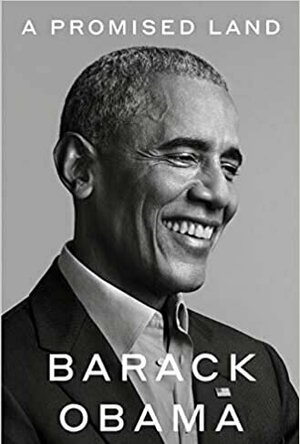
A Promised Land
Book
A riveting, deeply personal account of history in the making-from the president who inspired us to...
